Did you know that Gabon is home to 80% of Africa’s gorilla population? This stunning destination offers lush rainforests and unique wildlife, making it a must-visit for adventurous travel enthusiasts. However, to fully enjoy your trip, understanding the local currency and payment methods is essential.
Gabon uses the Central African CFA franc, which is shared with five other countries. Knowing how to manage your money ensures a hassle-free experience, whether you’re exploring vibrant city markets or remote natural wonders. This guide will help you navigate payments, exchange rates, and tips for a seamless journey.
Ready to dive deeper? Let’s explore everything you need to know about making the most of your travel experience in this incredible destination.
Introduction to Gabon’s Financial Landscape
Understanding the financial landscape is key to a smooth travel experience in Gabon. This country boasts a growing economy, with a 3.1% growth rate in 2022. Its fiscal balance improved significantly, shifting from a deficit to a surplus. This stability ensures a welcoming environment for visitors.
An Overview of Gabon’s Economy and Currency
Gabon’s economy is heavily influenced by its oil revenues, which surged by 82% in 2022. Tax revenues also saw a notable increase, supporting public spending. The country’s trade balance improved, with exports rising by 40.1%. These factors contribute to a robust financial system that benefits both locals and travelers.
The Importance of Understanding Payments for Your Trip
Having up-to-date information about Gabon’s financial workings is crucial. It helps you plan your time and expenses effectively. Ensure your visa and passport are ready before your trip. This preparation allows you to focus on enjoying the stunning landscapes and vibrant culture.
Knowing the right time and processes for payments can enhance your experience. Whether you’re shopping in local markets or dining at restaurants, being prepared ensures a hassle-free journey. This guide aims to equip every traveler with the knowledge needed to navigate Gabon’s financial landscape confidently.
Currency in Gabon: Navigating the Central African CFA Franc
The Central African CFA franc is the lifeblood of financial transactions in Gabon. This currency, shared with five other countries in the region, ensures seamless interactions for both locals and visitors. Understanding its features and usage can make your trip smoother and more enjoyable.
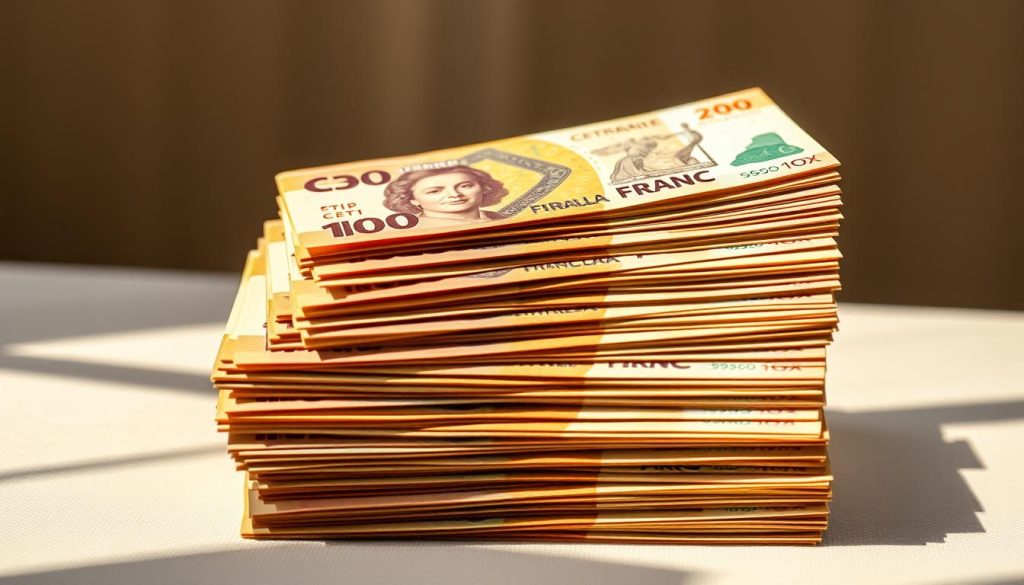
Key Features of the Central African CFA Franc
The Central African CFA franc (XAF) is pegged to the euro at a fixed rate of 1 euro = 655.957 XAF. This stability makes it a reliable choice for travelers. The currency includes coins and banknotes, with denominations ranging from 1 to 10,000 XAF. This variety ensures you can handle transactions of all sizes.
Using cash is common in Gabon, especially in local markets and rural areas. However, credit cards are widely accepted in urban centers like Libreville. Keep in mind that some establishments may charge a small fee for card transactions, typically around 3%.
“The CFA franc’s stability and wide acceptance make it a traveler’s best friend in Central Africa.”
When exchanging money, it’s best to convert a small amount upon arrival for immediate needs. For better rates, visit banks or exchange bureaus in town. ATMs are also a convenient option, though they may charge additional fees.
In rural areas, access to banking services can be limited. Carrying enough cash is essential, but always prioritize safety. Split your money into different locations and use discreet pockets or a money belt.
By understanding the Central African CFA franc and its usage, you can navigate Gabon’s financial landscape with confidence. Whether you’re shopping, dining, or exploring, being prepared ensures a hassle-free experience.
Gabon: Ultimate Travelers Guide to Currencies & Payments
Managing your finances effectively can make or break your travel experience. Knowing your payment options ensures a smooth and stress-free journey. Whether you’re shopping in local markets or dining at upscale restaurants, being prepared is key.
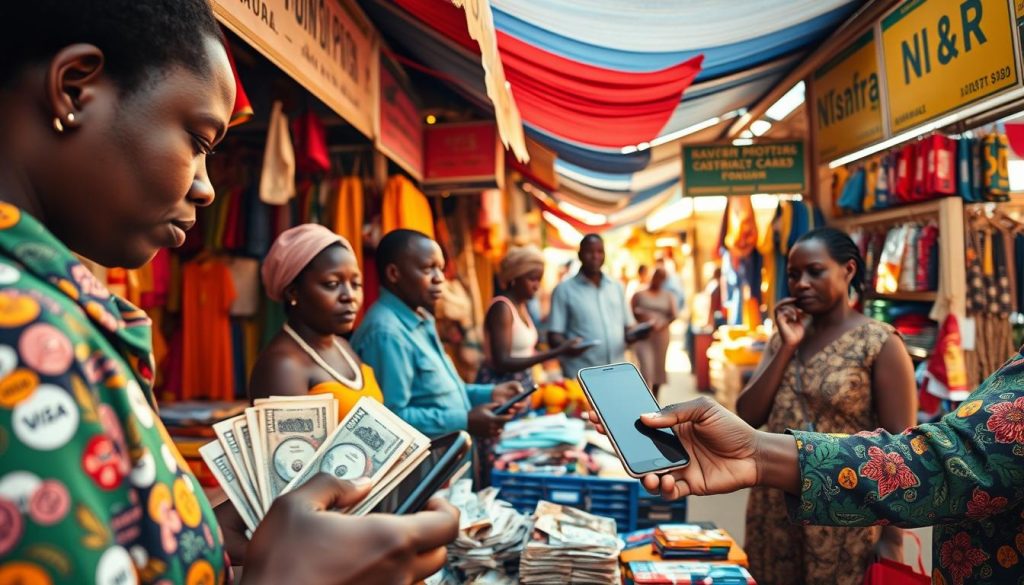
Cash: The Reliable Choice
Carrying cash is essential, especially in rural areas where credit card acceptance is limited. The Central African CFA franc is widely used, and having small denominations can be helpful for everyday transactions. Always keep your money secure by using a money belt or discreet pockets.
Credit Cards: Convenient but Limited
In urban centers like Libreville, credit cards are widely accepted. However, some establishments may charge a small fee, typically around 3%. It’s a good idea to inform your bank about your travel plans to avoid any issues with card usage.
Digital Wallets: The Future of Payments
While digital wallets are not yet mainstream, they are gaining popularity. Services like mobile payment apps can be a convenient alternative, especially for tech-savvy travelers. Always check for compatibility and availability before relying on this option.
Managing Currency Exchange Rates and Transaction Fees
Understanding exchange rates and fees can save you money. Here’s a quick guide to help you navigate these financial aspects:
| Payment Method | Exchange Rate | Transaction Fee |
|---|---|---|
| Cash | Bank or exchange bureau rates | None |
| Credit Card | Bank’s exchange rate | 3% (varies by establishment) |
| Digital Wallet | Service provider’s rate | 1-2% (varies by app) |
Here are some practical tips to manage your finances effectively:
- Convert a small amount of money upon arrival for immediate needs.
- Use ATMs for better exchange rates, but be aware of withdrawal limits and fees.
- Keep track of your budget to avoid overspending.
“Planning your financial strategy ahead of time can save you from unexpected hassles.”
By exploring diverse payment methods and understanding exchange rates, you can ensure a hassle-free experience. Whether you prefer cash, cards, or digital wallets, being prepared is the best way to enjoy your journey.
Banking Services and ATM Accessibility in Gabon
Accessing banking services in Gabon is straightforward with the right preparation. Whether you’re staying in a hotel or exploring remote areas, knowing your options ensures a smooth experience. This section covers everything from local banks to ATM availability, helping you manage your finances effectively.
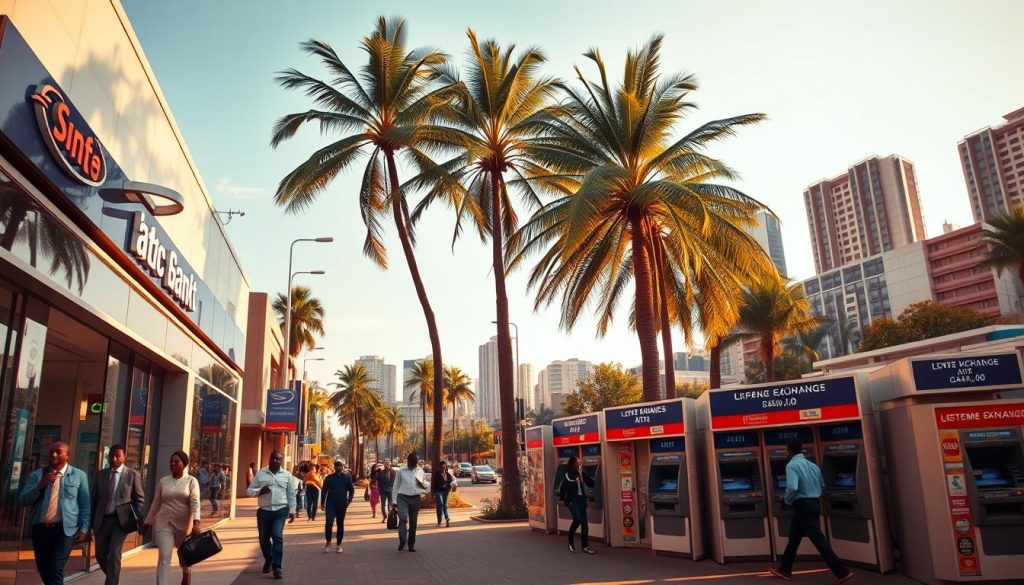
Leveraging Local and International Banking Options
Gabon offers a mix of local and international banking services. Major cities like Libreville have branches of global banks, making it easy to access your accounts. If you’re staying in accommodation near these areas, you’ll find it convenient to handle transactions.
For international travelers, it’s wise to inform your bank about your flight plans to avoid card issues. Some banks charge fees for overseas transactions, so check with your provider beforehand. Carrying a backup card is also a smart move.
ATM Availability and Planning Ahead
ATMs are widely available in urban centers but less common in rural areas. When planning your trip, ensure you withdraw enough cash for remote excursions. Always keep your passport handy, as some ATMs may require identification.
Here are some tips for using ATMs safely:
- Use ATMs located inside banks or secure areas.
- Avoid withdrawing large sums at once to minimize risk.
- Check for skimming devices before inserting your card.
Knowing Gabon’s official language, French, can also help. Many banking systems and ATMs operate in French, so basic language skills can make transactions smoother.
“Preparation is key to accessing banking services without hassle. Plan ahead and stay informed.”
By understanding these banking options and planning your cash needs, you can focus on enjoying your trip. Whether you’re in a bustling city or a quiet village, being prepared ensures a stress-free experience.
Safe and Practical Payment Methods for Transit and Road Activities
Navigating payments while on the road in a new country can be challenging, but with the right tips, you can stay safe and efficient. Whether you’re taking a taxi, renting a car, or using public transportation, knowing how to handle payments ensures a smooth journey.
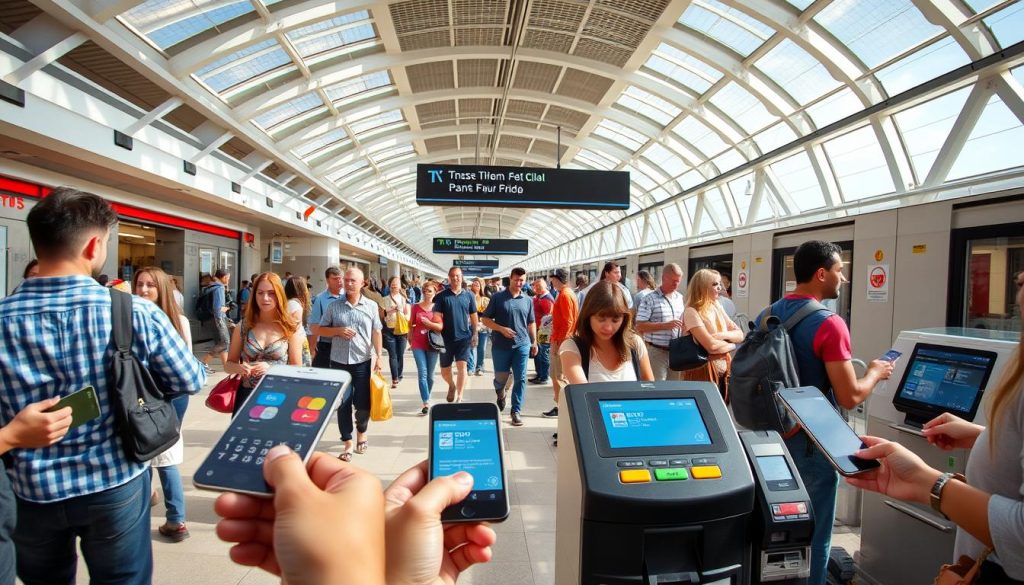
Tips for Handling Payments on the Road
When traveling, it’s essential to manage your money wisely. Here are some practical tips to keep in mind:
- Carry small denominations of cash for quick transactions.
- Use a money belt or discreet pockets to keep your cash safe.
- Inform your bank about your travel plans to avoid card issues.
- Always check for secure spots to handle payments, especially in busy areas.
These simple steps can make your day-to-day commutes much easier and safer.
Taxi, Car Rental, and Road Safety Payment Guidelines
Choosing the right transportation option is key to a hassle-free trip. Here’s how to ensure safe payments:
- For taxis, agree on the fare before starting your ride to avoid surprises.
- When renting a car, verify payment methods and insurance coverage upfront.
- Use trusted apps or services for rideshares to ensure transparency.
“Planning your payment strategy ahead of time can save you from unexpected hassles on the road.”
By following these guidelines, you can focus on enjoying your journey without worrying about payment issues.
Whether you’re exploring a bustling city or a quiet village, being prepared is the best way to stay secure. Keep these tips in mind, and you’ll have a smooth and enjoyable experience on the road.
Budgeting for Your Gabon Adventure: Accommodation, Food, and Transportation
Planning your budget for a trip can make all the difference in your experience. Knowing how to manage your expenses ensures you can enjoy every moment without financial stress. Here’s how to make the most of your adventure while staying within your means.
Cost-Saving Strategies and Budget Considerations
Traveling on a budget doesn’t mean missing out on amazing experiences. Start by prioritizing your spending. Focus on what matters most to you, whether it’s exploring national parks, trying local food, or staying in unique accommodations.
Here are some cost-saving tips to help you stretch your budget:
- Book in advance: Early reservations often come with discounts, especially for accommodations and transportation.
- Travel off-peak: Visiting during quieter seasons can save you money on flights and lodging.
- Use local transport: Public transportation is usually cheaper than taxis or private cars.
Typical Expenses for Parks and Local Food
Exploring national parks is a highlight for many visitors. Entry fees vary, but you can expect to spend around $10-$30 per person. Guided tours or safaris may cost more, but they offer unforgettable experiences.
When it comes to food, local options are both delicious and affordable. Street food can cost as little as $1-$3 per meal, while mid-range restaurants charge around $10-$25. Don’t forget to try regional specialties for a true taste of the area.
Finding Budget-Friendly Accommodation and Transportation
Accommodation costs can vary widely. Budget travelers can find hostels or guesthouses for $10-$30 per night. Mid-range hotels typically cost $50-$100, while luxury options start at $150.
For transportation, consider using local buses or shared rides. These options are not only cheaper but also give you a chance to experience the area like a local. If you’re traveling between cities, look for deals on domestic flights or overland tours.
“Smart budgeting allows you to enjoy more experiences without breaking the bank.”
By planning ahead and making informed choices, you can create a memorable adventure that fits your budget. Whether you’re exploring parks, savoring local food, or finding the perfect place to stay, these tips will help you make the most of your trip.
Navigating Cultural Etiquette and Payment Practices
Understanding cultural norms can enhance your travel experience and make interactions smoother. When making payments, being aware of local customs shows respect and helps build positive connections. This guide will help you navigate these practices with confidence.
Essential Local Phrases for Smooth Transactions
Learning a few key phrases in the local language can make transactions easier. Here are some helpful phrases:
- “Combien ça coûte?” (How much does it cost?)
- “Je voudrais payer, s’il vous plaît.” (I would like to pay, please.)
- “Avez-vous la monnaie?” (Do you have change?)
Using these phrases shows effort and respect, making interactions more pleasant for both you and the person you’re speaking with.
Adhering to Payment Etiquette and Avoiding Financial Pitfalls
Respectful behavior is crucial, especially when handling payments. Always greet the person before starting a transaction. A simple “Bonjour” (Hello) can go a long way.
At night, be extra cautious. Carry only the cash you need and avoid displaying large sums. Stick to well-lit areas and trusted vendors to ensure your safety.
Here are some tips to avoid common financial pitfalls:
- Always confirm prices before making a purchase.
- Carry small denominations for easier transactions.
- Be wary of overly friendly strangers offering deals that seem too good to be true.
“Respecting local customs and being mindful of your surroundings ensures a smooth and enjoyable experience.”
By following these guidelines, you’ll navigate payments with ease and build positive connections with locals. Whether you’re shopping, dining, or exploring, these tips will help you feel confident in every interaction.
Essential Traveler Tips: Visa, Passport, and Financial Preparations
Preparing for your trip involves more than just packing your bags—it’s about ensuring all your documents and health requirements are in order. Taking the time to understand visa, passport, and vaccination needs can save you from last-minute stress and delays. Let’s break down what you need to know before you go.
Understanding Visa, Passport, and Vaccination Requirements
First, check if your destination requires a visa. For many countries, you’ll need to apply in advance, so start this process early. Your passport should be valid for at least six months beyond your planned departure date. This is a common requirement to avoid issues at the airport.
Next, look into vaccination requirements. Some destinations may require proof of yellow fever or other immunizations. It’s a good idea to consult your doctor or a travel health clinic at least six weeks before your trip. This gives you enough time to complete any necessary vaccines.
Navigating Airport Procedures and Security
Arriving at the airport prepared can make your journey smoother. Have all your documents ready, including your passport, visa, and boarding pass. Be aware of security rules, such as limits on liquids and electronics. Packing smart can save you time and hassle.
During peak travel season, airports can be busier than usual. Arrive at least two hours early for domestic flights and three hours for international ones. This extra time helps you navigate check-in and security without rushing.
Anticipated Fees and Costs
Traveling often comes with unexpected fees. Visa applications, airport taxes, and baggage charges can add up. Research these costs in advance to budget accordingly. For example, some countries charge a departure fee when you leave.
As a tourist, you might also encounter entrance fees for attractions or national parks. These are usually small but worth factoring into your overall budget. Planning ahead ensures you’re not caught off guard.
“Proper preparation is the key to a stress-free and enjoyable travel experience.”
By taking these steps, you’ll be ready to embark on your adventure with confidence. Whether it’s securing your visa, updating your vaccinations, or navigating the airport, a little preparation goes a long way.
Conclusion
Exploring a new world is always exciting, but understanding the financial landscape ensures a smooth journey. From managing payments to navigating local customs, being prepared lets you focus on the adventure. This guide has equipped you with the tools to confidently handle money matters wherever you go.
Whether you’re drawn to lush landscapes or pristine beaches, this unique place offers unforgettable experiences. Planning your finances ahead of time empowers you to make the most of every moment. From budgeting tips to payment methods, you’re ready to explore with ease.
Take the leap and make this stunning world your next destination. With the right preparation, you’ll create memories that last a lifetime. Start planning today and get ready to visit a place that will leave you inspired.
The above is subject to change.
Check back often to TRAVEL.COM for the latest travel tips and deals.
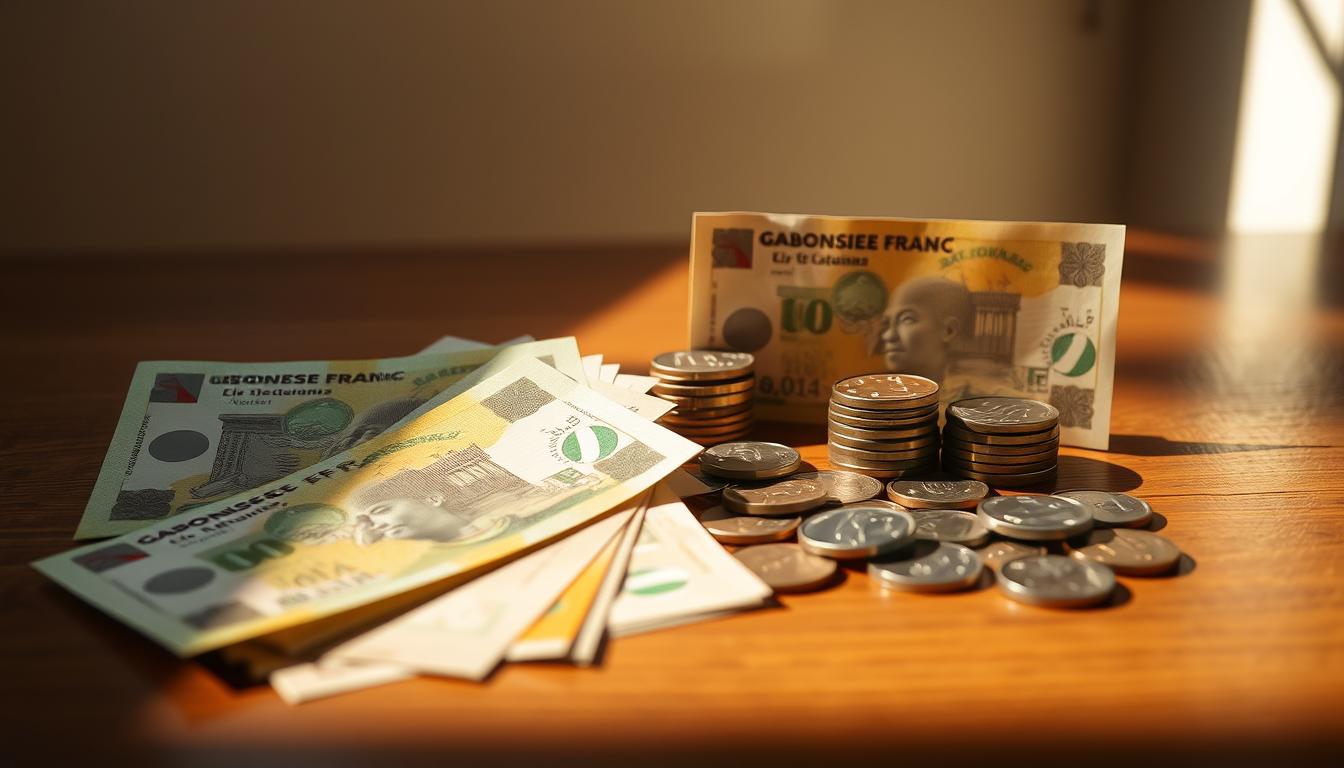




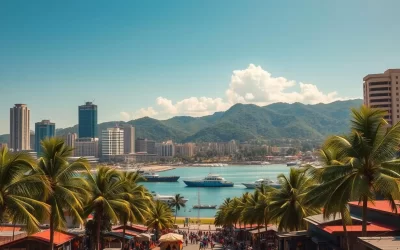

0 Comments